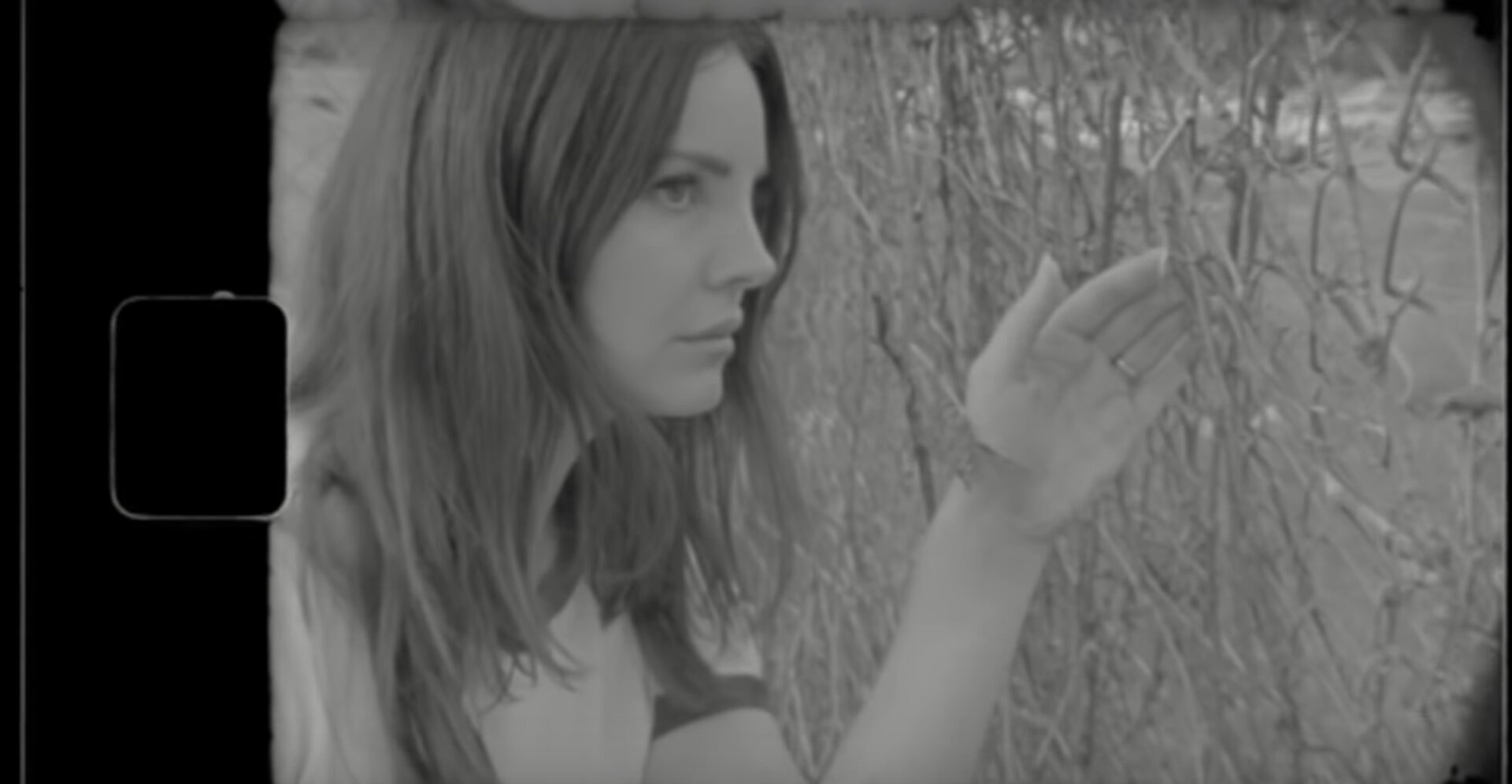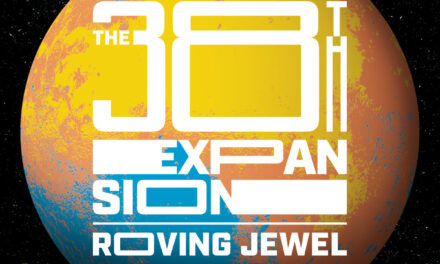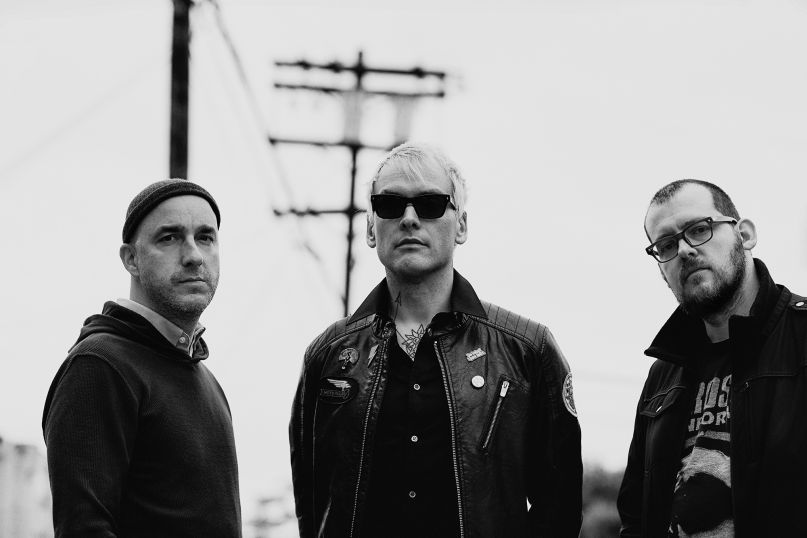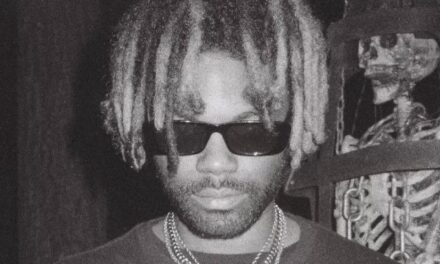The quartet gets introspective and discusses life’s challenges and the possibility of growth and change.
Heartfelt, emotional tunes that can make one cry in the shower or gym and ponder philosophical questions about life and its meaning are what Great Britain’s post-hardcore rock band Holding Absence—comprised of lead vocalist Lucas Woodland, guitarist Scott Carey, bassist Benjamin Elliot, and drummer Ashley Green— has become known for in their seven years as a group. The band’s latest effort The Noble Art of Self Destruction, set to be released on August 25th via Sharptone Records— the third record in a trilogy started by 2019′ s self-titled record—, is no different. Standout singles such as “A Crooked Melody” and “False Dawn”, the latter being a defeatist song revolving around coming to grips with failure and denouncing expectations, see the group continuing to create music that combines uptempo energy, poignant lyrics, and downtrodden introspection. Zooming in from a cozy room on a Monday afternoon, lead vocalist Lucas Woodland was eager to discuss The Noble Art of Self Destruction. The album acts as a love letter to what the band holds dear and is a testament to how the band has grown emotionally and musically. “A big part of our band has been learning as we go and trying to discover who we are and what we do best while learning about ourselves over time. This album is a testament to how our life’s story is never fully told.”
Formed in 2015 in Cardiff, Wales, Holding Absence has honed in on their keen ability to craft catchy tunes with touching lyrics while delivering a moving performance. Acting as a follow-up to the 2021’s The Greatest Mistake of My Life, The Noble Art of Self Destruction is conceptually rich, and expansive, and cements the group as one of rock’s most beloved UK bands. In 2022, the band released “The Lost and The Longing”, a split EP alongside Alpha Wolf, harkening back to the days of bands creating split records to save money. The latest effort sees the band experimenting with different styles as shown on the acoustic track “Honey Moon”, one of Holding Abscence’s most beautiful songs. The band recently released the visualizer for their new single “Scissors.”
Woodland sat down with Substream to chat about the band’s forthcoming record, pushing lyrical and musical boundaries and the album’s subject matter being influenced by Michaelangelo and the Japanese pottery art Kintsugi.
This album is part of a trilogy, starting with your band’s 2019 self-titled record. What made you want to go in this direction regarding the releases?
Woodland: “When we started writing this album —I’m always looking ahead— I’ve been thinking about the concept for this album for years. We felt this album would be the end of the beginning of this band. By the time this album comes out and it’s been released for a long time, we’ll be adult men and we’d have lived through 10 years in the industry and have learned a lot. It’s very much encompassing the youth of Holding Absence. At the same time, it was very much a way for us to say to people ‘There’s a lot more to come and there’s a lot more to be excited about.’ Another cool thing is it gave us more of an understanding of what we were writing. For example. “Honey Moon” is this beautiful acoustic rock song. Maybe we wouldn’t have put that on the album, maybe we would’ve done a song like that in the future. We want this trilogy to contain every aspect of our band and this is one of them. It’s about ticking off any undone things before that trilogy closes, which really helped us find purpose while writing the songs.”
“Honeymoon” is so unique for your band because it’s an acoustic track, a departure from the band’s usual sound. What inspired you to do something different there?
Woodland: ” That’s the fun part of being in bands. You follow ideas and find out where they take you and sometimes they take you to beautiful places. “Honeymoon” is a weird one because I wrote that song on an acoustic guitar. Not to shade my bandmates, but I pitched that song 3 or 4 times. I was like ‘I think this could be great’ and it was almost hard to imagine it being a song. Now we’ve realized it and it’s a tangible thing. Who knows what we can learn and how we can expand on that sound going forward?”
“False Dawn” is such a beautiful song that touches on the relatability of harboring a downtrodden perspective when going through life’s struggles, like most of your band’s music. What made you want to write about life from a defeatist perspective?
Woodland: “If people can’t relate to Holding Absence’s music, then it doesn’t exist. Yes, this is me exercising my emotions and documenting my human experience, but if nobody else can relate to me then who cares? I think a big part of that comes from the fact that we are kids of the scene. We grew up listening to all the same bands that our fans grew up listening to and we’re just fortunate we get to live this dream. We’re still able to exist in the scene in a different way. The other thing I think genuinely is this is a subculture that has a communal marginalization. Generally, we find solace in this music because it’s about society not accommodating us and us feeling outside of the norm— they call it alternative, we are the other people. I think the best things to connect to are the hardest things to talk about.”
The video for “Crooked Melody” is so stunning, one that is inspired by kintsugi, a type of Japanese pottery art. Can you tell me about the process of making the video?
Woodland: ” Kintsugi is what you’re referencing there and it’s the idea that when something is broken in Japan— for hundreds of years they would use glue and gold and they would make the broken thing more valuable. I think that’s an interesting metaphor to have in life because I feel like the hardships I’ve faced have taught me lessons and I’ve been a better person for those lessons even though it was hard to learn them. That’s a big part of this album. If you look at the artwork, there are kintsugi gold lines on there. For the video, we really wanted to try and capture this universe, there are lots of themes coming and going. The video is mainly us performing in a blue universe but we’re performing in front of this big block of stone and the hugely inspirational thing for this album was Michaelangelo’s David. Researching and thinking about how insane the marble sculpture is when you think about it and then on top of that you have the metaphor for the fact that the marble sculpture is broken to be created. I found that to be interesting, almost as if we as people need to break to become more beautiful. There’s always something to look for in our videos.
The closing track on the album is a song called “Angel in the Marble” which is a reference to Michaelangelo. The lyric “There was an angel in the marble and I had to set it free” was how we described David and I thought that was so profound because we as people are all blocks of marble and how we chose to sculpt ourselves is up to us.”
How did you find the influences for this album, being that they are so varied?
Woodland: ‘ It was about looking outside of music to find inspiration for this album. It’s a trilogy and Star Wars is the most successful version of a trilogy in my head. It was the idea of establishing something and finishing it over the space of three albums and looking at it like you would Lord of the Rings or Star Wars and thinking about what moments would have the best payoff and how can I harken back to this thing in this album and get closure there and so forth.”
How has your band grown since the success of The Greatest Mistake of My Life?
Woodland: “I think The Greatest Mistake of My Life was a very special moment for all of us in our lives and our career as a band. I think it was our way of reaching people like yourself who look for reliability in music and trying to write an album that connected with people. I will say that the main difference when you look at the growth of our band has been brilliant since The Greatest Mistake of My Life. We’ve been really fortunate and “Afterlife” did really well. When we wrote it, it was myself and Scott meeting up every couple of nights. He worked at a coffee shop and I worked at a music shop and we would just try and find a way to write music in our day-to-day lives. All these years later, that album has done so well that we don’t have jobs anymore, this is our job. It’s been a really nice experience because I look at the kid that I was back then and look at the adult that I am now and how my life has changed and where that album took us and how this album is rooted in maturity and professionalism that we didn’t anticipate needing when we did The Greatest Mistake of My Life. We didn’t think anyone would hear it. It’s been really nice growth and I hope that people can feel that on this new album. We wanted it to be all killer, no filler, and clinically good. I hope that the first album we managed to write as full-time musicians comes across as a professional body of work.”
What do you want fans to take away from this album?
Woodland: ” Hope. I am a cynical person and a realistic person, but more than anything I’m a hopeful person. I think my goal in life is to find good in the bad and the light in the dark. Ironically, you can say everything Holding Absence has ever released has been about hope. I can remind people of the darkness in the world sometimes but then show them the beauty of life in spite of death, which is what The Greatest Mistake of My Life was. This album is about hardship and that it’s hard to break but you will be more beautiful for that.”

Holding Absence press photo (Credit: Nick Azinas)













